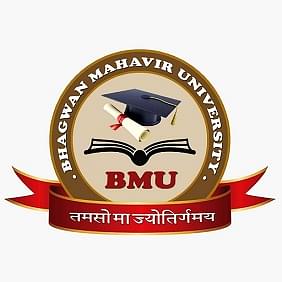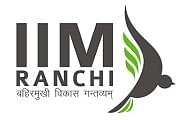Introduction about BA in Music
BA in Music is an undergraduate degree program that provides students with a
comprehensive understanding of music theory, history, performance, and
composition. This program is designed for individuals passionate about music
and interested in pursuing careers in various musical fields or further
academic study.
What is eligibility for BA in Music ?
The eligibility criteria BA in Music can vary slightly depending on the institution, but
generally, the following criteria apply:
1. Educational Qualification:
High School
Completion: Applicants
should have completed their higher secondary education (12th grade) or its
equivalent from a recognized board or educational institution.
Stream Requirements: While students from any stream (Science,
Commerce, or Arts) can typically apply, some institutions might have a
preference for students with a background in arts or music.
2. Minimum Marks:
Percentage
Requirement: Most
institutions require a minimum aggregate percentage in the 12th grade. This is
usually around 50-60%, but it can vary depending on the institution at best college in Assam.
3. Music Proficiency:
Prior Training: Some institutions may prefer or require
applicants to have prior training in music, such as learning an instrument,
vocal training, or knowledge of music theory.
Examinations: Applicants may need to pass a music
proficiency test conducted by the institution to assess their skills and
knowledge in music.
4. Entrance Examinations:
Music Entrance Test: Many institutions conduct their own
entrance examinations to evaluate the musical aptitude and skills of the
applicants. These tests may include practical performance (singing or playing
an instrument), music theory, and aural skills.
Audition: Some programs may require applicants to
audition as part of the selection process. This can include performing a piece
of music, sight-reading, and demonstrating technical skills on an instrument or
vocal performance.
5. Interview:
Personal Interview: Some institutions may conduct a personal
interview to assess the candidate's passion for music, understanding of the
subject, and suitability for the program.
6. Additional Requirements:
Recommendation
Letters: Some institutions
may ask for letters of recommendation from music teachers or professionals who
can attest to the applicant's musical abilities and dedication.
Statement of
Purpose: A statement of
purpose or a personal statement explaining the candidate's interest in studying
music and their career aspirations may be required.
What is admission process for BA in Music?
The admission process BA in Music typically involves several steps,
including meeting eligibility criteria, completing an application, passing
entrance examinations or auditions, and possibly attending interviews. Below is
a detailed outline of the typical admission process:
1. Research and Preparation:
Identify
Institutions: Research
various colleges and universities offering a BA in Music to understand their
specific requirements and application deadlines.
Prepare Documents: Gather necessary documents such as
academic transcripts, identity proof, recommendation letters, and a statement
of purpose.
2. Eligibility Check:
Educational
Qualification: Ensure you
have completed your higher secondary education (12th grade) or its equivalent
from a recognized board.
Minimum Marks: Check that you meet the minimum aggregate
percentage required by the institution, usually around 50-60%.
3. Application Process:
Application Form: Fill out the application form available on
the institution’s official website or obtain it from the admissions office.
Application Fee: Pay the non-refundable application fee, if
applicable.
4. Entrance Examination and Audition:
Music Entrance Test: Many institutions require candidates to
take an entrance examination to assess their musical skills and knowledge. This
may include:
Practical
Performance: Singing or
playing an instrument.
Music Theory: Written test on music theory and aural
skills.
Sight Reading: Ability to read and perform a piece of
music at sight.
Audition: Some programs require an audition where
you perform a prepared piece of music. This can be conducted in-person or
through video submission.
5. Interview:
Personal Interview: Shortlisted candidates may be called for a
personal interview to discuss their interest in music, their career
aspirations, and to assess their suitability for the program.
6. Portfolio Submission (if required):
Portfolio: Some institutions might ask for a
portfolio showcasing previous musical work, such as recordings of performances,
compositions, or other relevant projects.
7. Merit List and Selection:
Merit-Based
Selection: Candidates are
selected based on their performance in the entrance exam, audition, interview,
and academic qualifications at top college in Assam.
Admission Offer: Selected candidates receive an offer of
admission, which they need to accept within a specified period.
8. Final Admission:
Document
Verification: Submit
original documents for verification, including mark sheets, certificates, ID
proofs, and other required documents.
What is syllabus for BA in Music?
The syllabus BA in Music typically covers a broad range of topics to
provide students with a comprehensive understanding of music theory, history,
performance, and various music-related skills. The exact curriculum can vary by
institution, but the following outline provides a general idea of the subjects
and topics commonly included in a BA in Music program:
Year 1: Foundation Courses
1. Music Theory
Fundamentals of
Music Theory
Notation and Rhythm
Scales, Modes, and
Keys
Harmony and Chord
Progressions
2. Aural Skills
Ear Training
Sight Singing
Interval
Recognition
Melodic and
Rhythmic Dictation
3. Music History and Appreciation
Introduction to
Western Classical Music at best university in Assam
Study of Different
Musical Periods (Baroque, Classical, Romantic, Modern)
Important Composers
and Their Works
4. Performance Studies
Individual
Instrument/Vocal Lessons
Ensemble
Performance (Choir, Band, Orchestra)
Stage Presence and
Performance Techniques
5. Introduction to Ethnomusicology
Study of Music from
Different Cultures
Comparative
Analysis of Music Traditions












